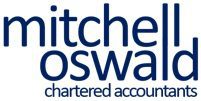May 2018 - Newsletter
Smallest firms hit by higher pension costs
Startups and the smallest businesses are having to absorb higher pension costs as the new tax year gets under way.
The Federation of Small Businesses (FSB) warned that the doubling of minimum employer contributions into workplace pensions from 6 April 2018 will “hit the very smallest firms and startups the hardest”.
Firms in labour-intensive industries – such as retail, childcare and construction – will reportedly feel the impact most acutely.
The FSB claims these sectors are already beset by high inflation and skills shortages, with further auto-enrolment increases due to come into force next year.
From 6 April 2019, employer contributions will rise to 3% and the total amount going into workplace pensions is expected to pass £17 billion around the same time.
Mike Cherry, chairman of the FSB, said:
“Small business owners want to see employees save, but more needs to be done to help firms absorb high labour costs.”
However, the FSB welcomed the decision by chancellor Philip Hammond to freeze the VAT registration threshold at £85,000 for 2018/19.
Cherry added:
“VAT is the most time-consuming tax for our members to manage, with registered small firms spending a working week every year complying with VAT obligations on average.
“There is an issue with firms approaching the £85,000 threshold and putting the brakes on.
“Resolving that lies in a smoothing mechanism though, not in suddenly dragging more firms into the VAT regime.”
Selected businesses begin Making Tax Digital testing
A number of selected small businesses have begun submitting tax returns under HMRC’s Making Tax Digital (MTD) pilot scheme.
The Revenue asked for businesses to step forward and trial the digital process from April 2018.
HMRC is monitoring the progress of businesses and sole traders, who have been submitting tax returns to help shape the system before it’s rolled out for VAT only next year.
Five products are believed to be involved in the pilot scheme, following an extensive beta testing programme which involved 18 developers and took a year.
Two suppliers – IRIS and Rhino – have trial products available to send income tax updates. Their features include:
- testing digital record-keeping
- sending updates to HMRC
- providing a tax estimate from HMRCbased on updates.
The Revenue has confirmed businesses will be allowed to continue using spreadsheets for record-keeping, but they will need to ensure the spreadsheet can submit MTD updates.
This is likely to be done through use of an application programming interface (API), which will enable commercial software to share data with HMRC’s servers.
MTD is due to come into force from April 2019, at which point VAT-registered businesses will be obliged to submit quarterly reports to HMRC for VAT only.
Eventually, most firms and the self-employed will need to use relevant software to keep their tax records, provide quarterly summaries of tax data and submit a finalised year-end position to HMRC.
At least five tax returns (four quarterly updates and one annual declaration) will need to be filed each year when MTD is fully rolled out.
It will change the way most businesses keep accounting records, how they report their income to HMRC and the services required from their accountants or tax agents.
MTD was originally due to come into force for income tax and national insurance contributions in April 2018, with the first quarterly updates due to be filed in July 2018.
The scheme was delayed by 12 months for VAT-registered businesses in July 2017, while MTD won’t be phased in for other taxpayers until at least April 2020.
Late payments affect almost half of small businesses
Almost half of small and medium-sized businesses have struggled with late payments in the last year, according to research by the Institute of Directors (IoD).
Of the 787 business leaders surveyed, 48% have faced issues with late payments since April 2017.
Almost a third (31%) said this was the result of an “excessively bureaucratic payments system” in the company being invoiced.
Others noted disparity between the practices of smaller and larger businesses, with 23% claiming larger firms in their supply chain used “grossly unfair” terms or practices.
Around one in three (30%) payments to small businesses are late and the average value of each payment is £6,142.
In December 2017, small business commissioner Paul Uppal launched a complaints handling service which was intended to help businesses resolve payment disputes.
However, only 1% of respondents to the IoD survey thought mediation by the small business commissioner would be the best way to address late payments.
Edwin Morgan, director of policy at the IoD, said:
“It is deeply disturbing that so many businesses have to struggle to claim the money they are owed.
“Chasing late payments can have a particularly damaging effect on small companies, sapping resources and hurting their productivity.
“The government has a job to do to publicise the options that are out there, and we would also urge them to consider stronger measures to clamp down on the menace of late payment.”
Lack of funding holds back 1 in 4 SMEs
Difficulty accessing funding is causing around one in four small and medium-sized firms to miss out on business opportunities, research shows.
A survey by Aldermore of 1,004 senior decision-makers in SMEs revealed that 23% had missed out on at least one new business opportunity due to lack of funding in the past 12 months.
The issue shows no signs of improvement, with 4% more businesses reporting this problem since the same survey was conducted in 2017.
On average, these missed opportunities cost SMEs an income worth £78,942 per year – an increase of £1,291 since last year.
The research found medium-sized businesses, defined as those with 50 to 249 employees, suffered the most.
More than two fifths (42%) of medium-sized businesses were significantly impacted by a lack of access to funding, compared to 32% in the previous year.
For these organisations, the impact on income came to an average loss of £110,960.
Funding proved one of the biggest problems facing SME business leaders in the coming months, as 32% said their main concerns were funding and cashflow.
Meanwhile, 15% said they were most worried about late payments.
The report follows the launch of an inquiry into finance for SMEs by the Treasury select committee in February 2018.
The committee is assessing the different sources of funding that are available to SMEs, and how regulations protect small businesses that borrow money.
However, the inquiry is still ongoing, and the deadline for written submissions closed on 30 March 2018.
Carl D’Ammassa, group managing director of business finance at Aldermore, said:
“It is deeply concerning that, despite the ongoing Treasury select committee inquiry into sources of SME finance, the amount of businesses missing out on these opportunities has increased over the last 12 months.
“It is vital lenders work closely with small and medium-sized companies to help them find solutions to their funding issues, ensuring new business opportunities are capitalised on.”

Angela Mitchell – Partner
Angela has over 20 years of experience in tax and is both a Chartered Accountant and a Chartered Tax Adviser. She is a member of the Institute of Chartered Accountants of Scotland and the Chartered Institute of Taxation. Angela is an experienced tax adviser, specialising in advising owner managed businesses and entrepreneurs on all aspects of their tax affairs including personal tax, corporate tax, capital gains tax and inheritance tax.

Donna Oswald – Partner
Donna has over 20 years experience in the field of business advisory, accounts preparation and tax and is a member of the Institute of Chartered Accountants of Scotland. Donna qualified at a small independent firm in her home town of Perth, gaining excellent experience in all aspects of accounting, tax and bookkeeping. She then moved to a large national firm before founding Mitchell Oswald in 2013.



